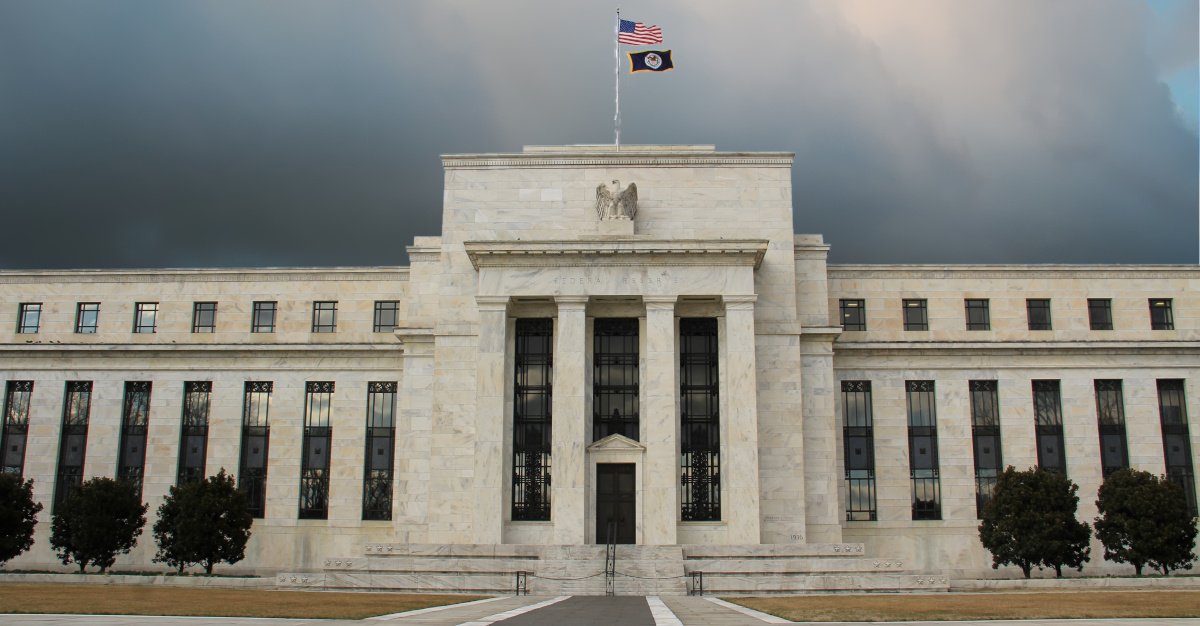by Simon Black, Sovereign Man:

You know the old joke– “Predictions are hard… especially about the future.” And it’s true, nobody has a crystal ball.
But it’s astonishing to see just how horribly wrong the people in charge can be in their predictions, especially about the very near future.
You probably remember Joe Biden famously insisted in the summer of 2021 that the Taliban was “highly unlikely” to take over Afghanistan.
TRUTH LIVES on at https://sgtreport.tv/
Boy did he turn out to be wrong.
Only a few weeks later, the Taliban was in control of the entire country… and the world watched in utter astonishment as US military helicopters evacuated embassy personnel from Kabul in one of the most shameful episodes in modern American history.
Not to be outdone, it appears that the Federal Reserve has just had its own Afghanistan moment.
It was only Tuesday of last week that the Fed Chairman testified before a committee of concerned senators who thought the Fed may be tightening monetary policy (i.e. raising interest rates) too quickly.
This was a valid concern; rapid interest rate hikes DO create a LOT of risks. And one of those risks is that asset prices– especially bond prices– plummet in value.
This risk is particularly problematic for banks because they tend to invest their customer deposits in bonds.
In fact, now that the Fed has tightened its monetary policy so quickly, banks across the US have more than $600 billion in unrealized losses on their bond portfolios. This is a pretty major problem… because that $600 billion is ultimately YOUR money.
After SVB, are you worried about that your bank could be the next one to collapse suddenly?
Download our new FREE 28-page report entitled “How To Tell If YOUR Bank Is Safe“. Packed with eight steps you can take to ensure your money is safe today, it’s essential reading for these uncertain times.
And it’s not like the Fed doesn’t have access to this information; after all, the Fed supervises nearly EVERY bank in the US financial system.
And yet last week the Fed Chairman completely rejected this risk, telling worried senators flat out that “nothing about the data suggests to me that we’ve tightened too much. . .”
In other words, he believed the Fed’s rapid interest rate hikes posed ZERO risk.
Talk about a terrible prediction; just THREE DAYS LATER, one of the largest banks in the US imploded, multiple bank runs unfolded across the country, the bond market fell into turmoil, and the Fed had to essentially guarantee the entire US banking system in order to restore confidence. (More on that in a moment.)
The mental image of bank runs in America, just days after the Chairman dismissed any risk, is the Fed’s equivalent of the Afghanistan debacle. It’s shameful.
But what’s REALLY concerning is the Fed’s response to this panic– their de facto guarantee of the entire US banking system. Because ultimately they just put YOU on the hook for the potential bond losses of every bank in America. I’ll explain–
After Silicon Valley Bank went bust, the FDIC announced that they will guarantee ALL deposits at the bank.
This is a departure from the FDIC’s normal pledge to guarantee deposits of up to $250,000, and their decision drew a lot of ire from pundits and politicians across the ideological spectrum. Many people concluded that the FDIC’s pledge was tantamount to a “taxpayer-funded bailout.”
But that assessment is wrong. Anyone who is intellectually honest and well-informed will easily understand that the FDIC is not funded by taxpayers. The FDIC is funded by charging fees to its member banks.
So when the FDIC decided to guarantee every depositor at Silicon Valley Bank, including those with balances exceeding $250,000, it means they’re bailing out SVB’s wealthy customers at the expense of big Wall Street banks.
But most people seem to have missed the real story… because the ACTUAL bailout is coming from the Fed, not the FDIC.



